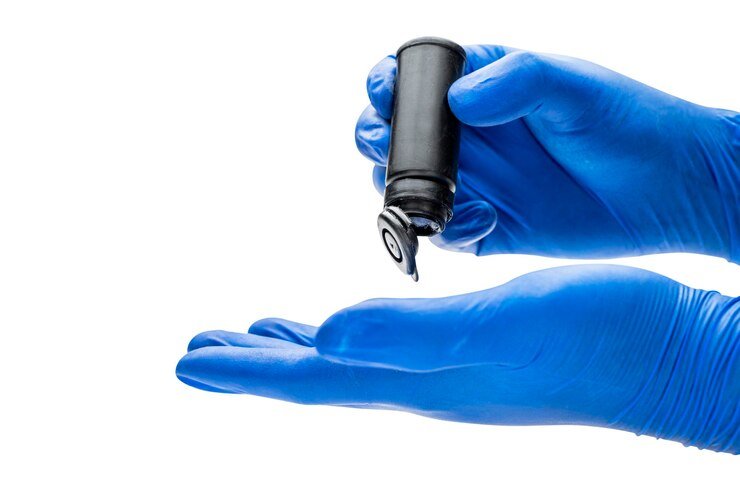In the realm of medical diagnostics, technology continues to push boundaries, offering innovative solutions that enhance patient care and improve outcomes. One such breakthrough is capsule endoscopy, a minimally invasive procedure that allows physicians to visualize the gastrointestinal (GI) tract with unprecedented clarity and detail. From detecting obscure bleeding to diagnosing inflammatory bowel disease, capsule endoscopy has revolutionized the way we investigate and treat gastrointestinal conditions.
To Know More About It Please Click Here
What is Capsule Endoscopy?
Capsule endoscopy involves swallowing a small, pill-sized capsule containing a tiny camera, light source, battery, and transmitter. As the capsule travels through the digestive system, it captures high-definition images of the GI tract’s lining. These images are transmitted wirelessly to a recording device worn by the patient, which is later analyzed by a healthcare professional.
The Procedure
- Preparation: Before undergoing capsule endoscopy, patients may need to follow specific dietary restrictions or bowel preparation protocols to ensure optimal imaging quality.
- Ingestion: The patient swallows the capsule with a glass of water, typically in a fasting state. Once swallowed, the capsule begins its journey through the digestive system, propelled by natural peristalsis.
- Recording: As the capsule traverses the GI tract, it captures thousands of images, providing a comprehensive view of the esophagus, stomach, small intestine, and sometimes even portions of the colon.
- Analysis: After the capsule has passed through the body, the patient returns the recording device to the healthcare provider, who reviews the images to identify any abnormalities or pathology.
Indications and Applications
Capsule endoscopy is used to diagnose and evaluate various gastrointestinal conditions, including:
- Obscure Gastrointestinal Bleeding: Capsule endoscopy is particularly valuable in diagnosing sources of bleeding in the small intestine that may go undetected by traditional endoscopic procedures.
- Crohn’s Disease: Capsule endoscopy can visualize the extent and severity of inflammation in the small bowel, aiding in the diagnosis and management of Crohn’s disease.
- Small Bowel Tumors: Capsule endoscopy can help detect small bowel tumors, including benign and malignant lesions, which may be challenging to visualize with other imaging modalities.
- Celiac Disease: Capsule endoscopy may be used to assess the extent of small bowel mucosal damage in patients with suspected or diagnosed celiac disease.
Advantages of Capsule Endoscopy:
- Minimally Invasive: Capsule endoscopy is non-invasive and well-tolerated by patients, eliminating the need for sedation or anesthesia.
- Comprehensive Visualization: Unlike traditional endoscopic procedures, capsule endoscopy provides a complete view of the small intestine, allowing for the detection of lesions or abnormalities in hard-to-reach areas.
- Patient Convenience: Capsule endoscopy offers convenience and flexibility, as patients can resume their daily activities while the capsule is in transit.
- Improved Diagnostic Yield: Studies have shown that capsule endoscopy has a high diagnostic yield for detecting small bowel pathology, particularly in cases of obscure gastrointestinal bleeding.
To Know More About It Please Click Here
Limitations and Considerations
While capsule endoscopy offers numerous benefits, it also has some limitations and considerations:
- Incomplete Examination: Capsule endoscopy may not provide a complete examination of the GI tract, as the capsule may not traverse the entire length of the small intestine or may become retained in the bowel.
- Limited Therapeutic Options: Unlike traditional endoscopic procedures, capsule endoscopy does not allow for therapeutic interventions such as biopsies or polypectomies.
- Cost and Accessibility: Capsule endoscopy may be more expensive than other imaging modalities, and its availability may be limited in certain healthcare settings.
- Risk of Retention: There is a small risk of capsule retention, particularly in patients with strictures or motility disorders, which may require surgical conclusion, capsule endoscopy represents a significant advancement in gastrointestinal imaging, offering a safe, effective, and minimally invasive means of visualizing the small intestine and diagnosing a wide range of gastrointestinal conditions. While it is not without limitations, the benefits of capsule endoscopy in terms of diagnostic accuracy, patient comfort, and convenience make it an invaluable tool in the field of gastroenterology. As technology continues to evolve, capsule endoscopy holds promise for further enhancing our understanding and management of gastrointestinal diseases.


